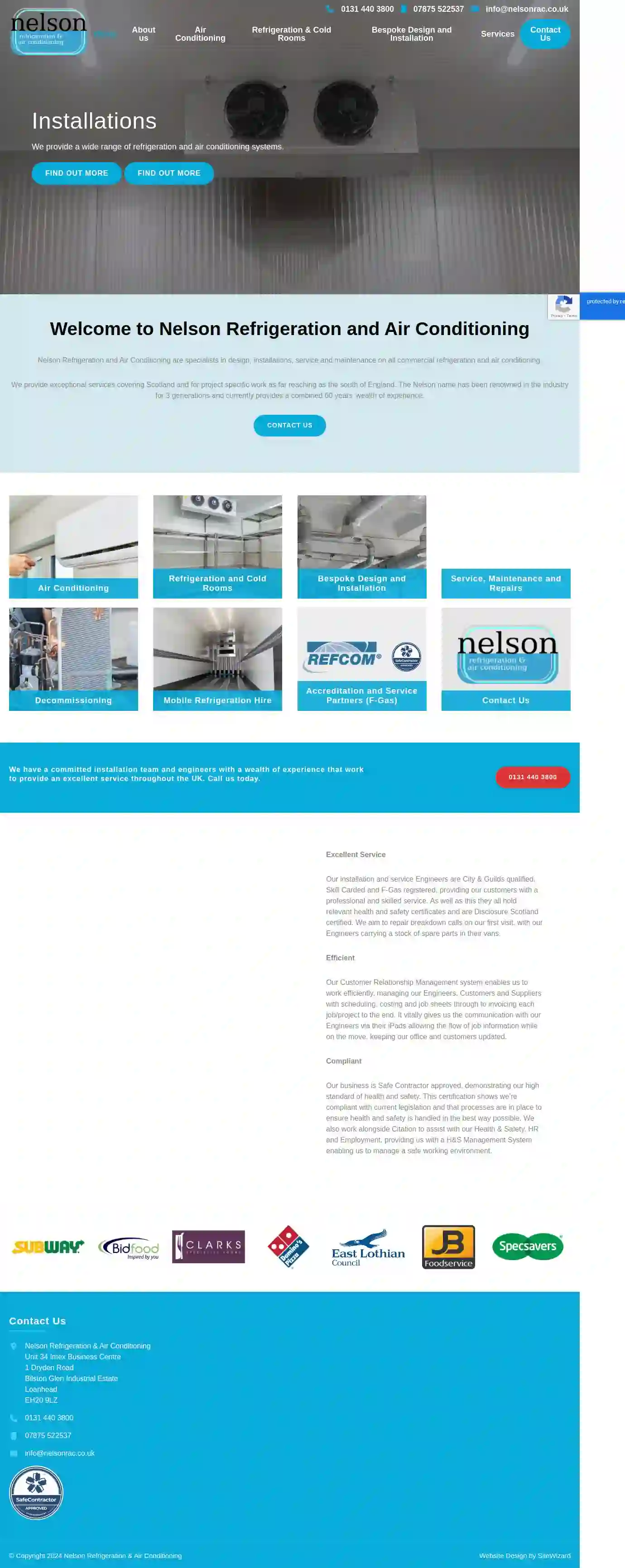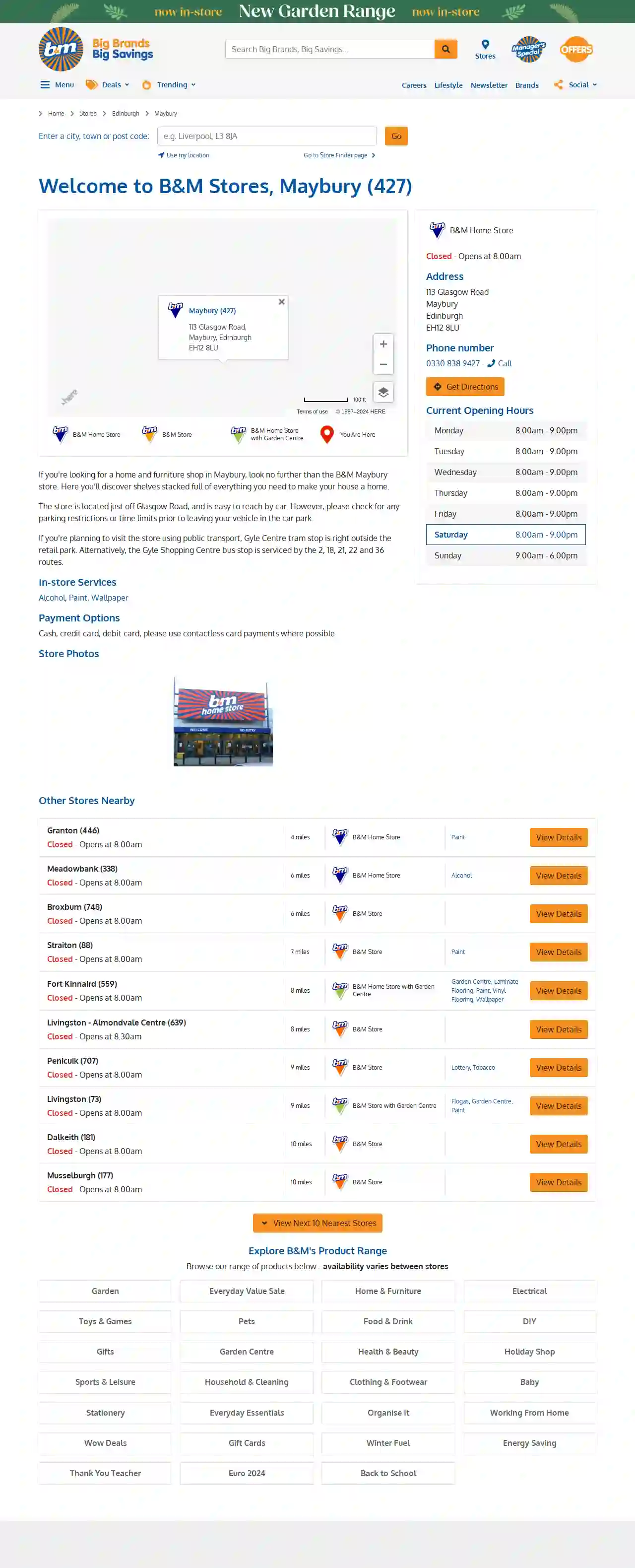AC Repair Edinburgh
Top 10 Air Conditioner Repair in Edinburgh
Receive up to 3 AC Repair quotes for your project today! Compare profiles, reviews, accreditations, portfolio, etc... and choose the best offer.

C1 Gas & Heating Services Ltd
5108 reviews73 Craighall Avenue, Edinburgh, EH21 8FP, GBC1 Gas & Heating Services LTD is an Introducer Appointed Representative of TradeHelp. We install market-leading 'A' rated high-efficiency boilers in Edinburgh & The Lothians. Our team of Gas Safe registered engineers provides boiler servicing, repairs, and installation services. We take pride in our comprehensive insurance coverage, extensive qualifications, and esteemed membership in the prestigious Gas Safe Register. Our goal is to provide outstanding service, ensuring your peace of mind and optimal performance of your boiler. With over 200 5-star online reviews, we are the reliable boiler company you can count on.
- Services
- Why Us?
- Accreditations
- Our Team
- Testimonials
- Gallery
Get Quote- ch
chris murphy domestic appliance repairs
56 reviewsEdinburgh, GB- Services
- Why Us?
Get Quote - Da
Davies
524 reviewsEdinburgh, GB- Services
- Why Us?
Get Quote 
Nelson Refrigeration & Air Conditioning
51 reviews1 Dryden Road, Bilston Glen Industrial Estate, Unit 34 Imex Business Centre, Loanhead, EH20 9LZ, GBNelson Refrigeration and Air Conditioning are specialists in design, installations, service and maintenance on all commercial refrigeration and air conditioning. We provide exceptional services covering Scotland and for project specific work as far reaching as the south of England. The Nelson name has been renowned in the industry for 3 generations and currently provides a combined 60 years’ wealth of experience. Our installation and service Engineers are City & Guilds qualified, Skill Carded and F-Gas registered, providing our customers with a professional and skilled service. As well as this they all hold relevant health and safety certificates and are Disclosure Scotland certified. We aim to repair breakdown calls on our first visit, with our Engineers carrying a stock of spare parts in their vans. Our Customer Relationship Management system enables us to work efficiently, managing our Engineers, Customers and Suppliers with scheduling, costing and job sheets through to invoicing each job/project to the end. It vitally gives us the communication with our Engineers via their iPads allowing the flow of job information while on the move, keeping our office and customers updated. Our business is Safe Contractor approved, demonstrating our high standard of health and safety. This certification shows we’re compliant with current legislation and that processes are in place to ensure health and safety is handled in the best way possible. We also work alongside Citation to assist with our Health & Safety, HR and Employment, providing us with a H&S Management System enabling us to manage a safe working environment.
- Services
- Why Us?
- Gallery
Get Quote
West Energy Services
4.955 reviews76 Dolphin Road, Currie, EH14 5SA, GBWelcome To West Energy Services Contact Us Keeping you warmFrom boilers and radiators, you stay warm with us Get a Quote Got an Emergency?We can help! Contact Us REQUEST A QUOTE Click Here We’re in the business of keeping you warm, dry and stress-free. We believe that you should have the warmest and cosiest home, without worrying about every leak! We exist, so that you’ve got someone you can rely on to deliver your dream heating system or fix a leak (if the worst happens). At West Energy Service, we’ve got your back! Talk To Us
- Services
- Why Us?
- Accreditations
- Our Team
- Testimonials
- Gallery
Get Quote- Ja
James Davie Plumbing & Heating
3.915 reviewsEdinburgh, GB- Services
- Why Us?
Get Quote 
THE EDINBURGH BOILER COMPANY LTD
4.8642 reviews29/2, Hardengreen Industrial Estate, Eskbank, Dalkeith, Edinburgh, EH22 3NX, GBThe Edinburgh Boiler Company is a leading provider of new boiler installation and replacement services in Edinburgh and across Scotland. We are proud to be the highest-rated company in Scotland on Trustpilot, specializing in customer service and offering a range of services including boiler installation, repairs, servicing, and boiler cover. We are accredited by leading boiler manufacturers like Worcester Bosch and Ideal Boilers, and we've been recognized for our excellence with the 2021 H&V News Award for Small Company Achievement of the Year. Our commitment to customer satisfaction is evident in our over 1500 positive Trustpilot reviews. We also offer a price match promise and 10-year boiler guarantees, ensuring peace of mind for our customers. In addition to boilers, we are experts in renewables, offering solar PV and heat pump installations. We are dedicated to providing a high-quality service and strive to make the process as smooth as possible for our customers.
- Services
- Why Us?
- Accreditations
- Our Team
- Testimonials
- Gallery
Get Quote
B&M Home Store
4.2991 reviewsEdinburgh, GBB&M Stores is a leading retailer of homeware, food, and general merchandise. With a rich history dating back to 1978, the company has grown to become one of the largest retailers in the UK. B&M Stores is committed to providing high-quality products at affordable prices, with a focus on customer satisfaction and community involvement.
- Services
- Why Us?
- Gallery
Get Quote- Bo
Border Heat
43 reviewsEdinburgh, GB- Services
- Why Us?
Get Quote - Sc
Scott Douglas Plumbing & Heating LTD
4.210 reviewsEdinburgh, GB- Services
- Why Us?
Get Quote
Over 16,895+ HVAC Contractors on our platform
Our HVAC experts operate in Edinburgh & beyond!
HVACCompaniesHub has curated and vetted the Best HVAC Companies arround Edinburgh. Find the most trustworthy pro today.
Frequently Asked Questions About AC Repair
- Warm air blowing from vents: If the air isn't cool, low refrigerant is a likely culprit.
- Ice formation: Freezing on the refrigerant lines or outdoor unit signals a pressure drop caused by leaks.
- Hissing or bubbling sounds: These noises can indicate escaping refrigerant.
- Increased energy bills: The system strains to cool with less refrigerant, using more energy.
How can I tell if my AC unit is low on refrigerant?
How do I fix a frozen AC unit?
What is a heat pump?
What is the difference between a central AC and a heat pump?
How can I tell if my AC unit is low on refrigerant?
- Warm air blowing from vents: If the air isn't cool, low refrigerant is a likely culprit.
- Ice formation: Freezing on the refrigerant lines or outdoor unit signals a pressure drop caused by leaks.
- Hissing or bubbling sounds: These noises can indicate escaping refrigerant.
- Increased energy bills: The system strains to cool with less refrigerant, using more energy.